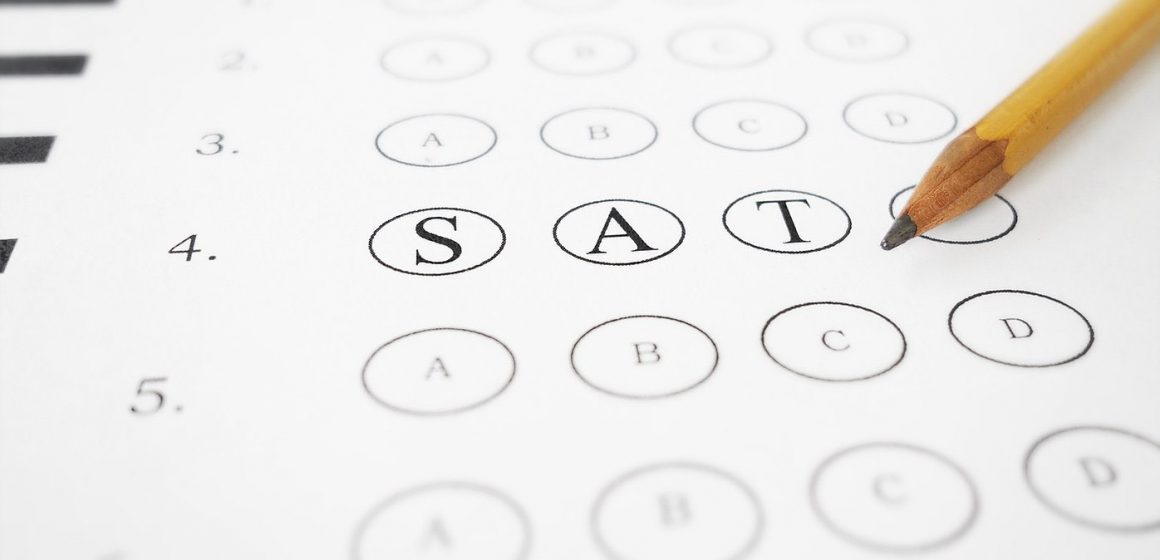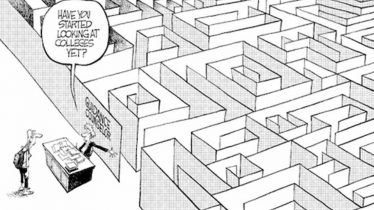SAT Basics: What You Need to Know But No One Tells You
Gabrielle Glancy helped educate us about the SAT’s, the college essays and the whole college process. My wife and I did not go to university in the U.S. Our son was the first in our family to go to university here. We needed a lot of help, even knowing how to fill out the forms. We are so grateful we found Gabby. — V. Patel
With the first official SAT of the year just around the corner (March 14th), parents and students are filled with questions about the test.
Unless you have a high school counselor who has lots of free time on their hands (an oxymoron ;-), you will probably not know the basics. It’s easy enough to find this information out for yourself, but for your convenience, I provide it for you here. If you want to, you can click on these links to various places on the College Board where you can find logistics, information, practice tests and even scholarship opportunities!
Recently I was on a panel at the Oak Grove School in Ojai, California discussing the fundamental inequities of the SAT vis a vis gender, race and parental income. The film in question titled The Test and The Art of Thinking made a compelling argument against using the SAT or ACT as a metric of acceptance into college, and showed it to be the business that it is, parading around as the big cahuna in college admissions — a case of the emperor’s clothes — when really it’s a racist, classist scam money-making scam (IMHO 😉 Recently, I saw that College Board has partnered with the Kahn Academy — which was one of many test prep/tutoring programs out there. This again raises eyebrows about the ethical nature of the firm. For my part, the filmmakers of The Test and The Art of Thinking are preaching to the converted. I already spend a lot of time telling students, who by all accounts should get into Harvard, Brown, MIT, just how capable they are, in spite of the fact they couldn’t seem to get their SAT scores up to (Ivy League or top tier-) snuff. This is the subject of a whole ‘nother article. For now, since, as they say, you can’t fight City Hall, I hope this information will at least help you navigate the inevitable.
Every year I prepare students for these standardized tests. I will be providing a list of tricks and tips in my next post.
Right now, let’s take a look at the basics.
You’re ready to roll. You’ve spent a good few months preparing for the test. You’ve got your pencil (and brain) sharpened, but what do you bring?
Here is what the College Board has to say about what you should bring and what you should leave home the day of the test, directly from “the horse’s mouth”:
Nice to Have
- A watch (without an audible alarm)
- Extra batteries and backup equipment—you’ll have to ask for permission to access them. They cannot be on your desk during the test.
- A bag or backpack
- A drink or snacks (for your break)
- Breakfast before you arrive
What Not to Bring
- Any devices, including digital watches, that can be used to record, transmit, receive, or play back audio, photographic, text, or video content (with the exception of CD players used for Language with Listening Subject Tests only)
- Audio players/recorders, tablets, laptops, notebooks, Google Glass, or any other personal computing devices
- iPods or other MP3 players
- iPads or other tablet devices
- Laptops, notebooks, PDAs or any other personal computing devices
- Any texting device
- Cameras or any other photographic equipment
- Separate timers of any type
- Protractors, compasses, rulers
- Highlighters, colored pens, colored pencils, mechanical pencils
- Pamphlets or papers of any kind
- Dictionaries or other books—there are no exceptions, even if English is not your first language
- Food or drinks (except for during breaks), unless approved by the College Board’s Services for Students with Disabilities. Learn more about testing with accommodations.
Your school counselor can share a complete list of prohibited devices—just ask to see the Official Student Guide.
Turn Off All Electronic Devices
You’ll need to turn off all electronic devices during the test and even during breaks. This includes cellphones. Be sure to turn off your watch alarm, if you have one.
Why? Test centers are serious about security and quiet, so prohibited devices—which include cellphones, tablets, and MP3 players—must be turned off and put under your desk. Better yet: Leave them at home.
If You Bring or Use Prohibited Devices
The test administration staff is encouraged to collect and hold phones and other prohibited electronic devices during the test administration, including break periods, or to deny admission to anyone who is in possession of a prohibited electronic device.
If your device makes noise or you are seen using it at any time, including during breaks, you may be dismissed immediately, your scores can be canceled, and the device may be confiscated and its contents inspected. The College Board is not responsible for loss or damage to personal items, including electronic devices, while you are in the test center.

There’s nothing new or fancy here — it’s taken directly from the CollegeBoard site. I provide it only because almost no one actually reads it beforehand. I often answer questions on this very subject or direct students and their parents to CollegeBoard.org
All test centers follow the same procedures and rules, which you should get familiar with before test day.
Important:
SAT Essay
If you’re unsure about taking the SAT Essay, you may be able to remove or add it on test day with your coordinator’s permission—if test materials, rooms, and staff are available. If you‘re able to switch on test day, there may be fees (or even a refund). Learn about Changing Your Registration Information.
Doors Open 7:45 a.m.
All test centers open at 7:45 a.m. and doors close at 8 a.m., unless otherwise noted on your admission ticket. You cannot be admitted once testing has started. If you’re late or absent on test day, you can reschedule. We recommend rescheduling as opposed to re-registering—it will cost less. Find out more at Changing Your Registration Information.
Make sure you show up with everything you need.
Testing Starts Between 8:30 and 9 a.m.
Your seat is assigned, not chosen by you. Wait to be seated. Here’s what will happen next:
- The test coordinator will read all instructions verbatim from a manual and can answer questions only about procedure, not about test questions or content.
- The test coordinator will tell you when to start and stop working on each section.
- You must work within each section of the test only for the time allotted.
- You may not go back to a section once that section has ended.
- You may not go ahead to a new section if you finish a section early.
- Do not skip sections. Doing so may result in score cancellation, delays, or both.
- After the test is finished, the test coordinator will collect and count the test books to make sure all materials have been turned in before dismissing you from the testing room.
Don’t be surprised if your test experience isn’t exactly like that of the student sitting next to you. The sections in your test book might be different.
Breaks
For most students, there is one 10-minute and one five-minute break during the test, the only times you can eat and drink.
- Keep your ID and admission ticket with you at all times. They’ll be checked every time you enter the testing room.
- Test books, answer sheets, and calculators must remain on your desk during breaks.
- You can’t use this time to power up devices, like cell phones—if you do, your scores will be canceled.
Dismissal
If you take the SAT with Essay, you’ll likely be done testing around 1 p.m. If you’re not taking the essay, you’ll likely be done around noon.
Devices
We mention cell phones and electronics often, and for good reason. Your scores will be canceled if you don’t follow the rules around devices.
Things to keep in mind:
- Test administration staff reserves the right to collect and hold cell phones and other prohibited electronic devices during the test administration, including during break periods.
- If your device makes noise, or if you are seen using it, or if you attempt to access it at any time, including breaks, you will be dismissed immediately, your scores can be canceled, and the device may be confiscated.
- The College Board is not responsible for loss or damage to personal items, including electronic devices, while you are in the test center.
As for whether to prepare for the SAT — yes for sure — how to prepare for the SAT and how much time you should devote to doing so — that depends — these will be the subject of another post.
I will say this: There are tricks and it helps to know what they are.
Preparation is pretty much mandatory. Everyone prepares, which means to compete in this field, you must prepare too.
I would consider 3-6 months dedicated preparation with someone who knows the tricks, can help you navigate the test, and can contribute to building your confidence in your own abilities (this is key)!
Stay tuned for more on the subject.
In the meantime, you can take a look here at what I provide in preparing students for the SAT’s!



